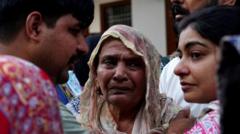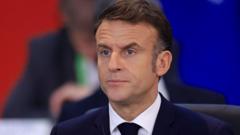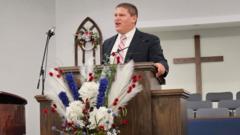A stabbing incident in Mulhouse, France, has left one dead and several injured, prompting President Emmanuel Macron to label it an Islamist terrorist attack. The attacker, who was previously on France’s terrorist watch list, raises concerns about national security and radicalization in a context of complicated societal dynamics.
Stabbing Incident in Mulhouse: Terrorism or Common Crime?

Stabbing Incident in Mulhouse: Terrorism or Common Crime?
A deadly market attack in France raises questions about the nature of terrorism amidst rising tensions.
A man attacked civilians at a market in the city of Mulhouse, France, on Saturday, leading to one fatality and multiple injuries. President Emmanuel Macron declared the incident an “Islamist terrorist attack,” emphasizing the government’s commitment to combatting terrorism within the nation. The police confirmed the investigation is being treated as a terrorist act.
Witnesses reported that during the assault, the assailant, a 37-year-old man, shouted “Allahu akbar,” an Arabic phrase that translates to “God is great.” While commonly used in everyday contexts, it has also been a phrase associated with various extremist attacks. Tragically, a civilian who intervened in an attempt to stop the attack lost their life, and three police officers sustained injuries, two of them severely.
The attacker was apprehended on the scene and, although his identity has not yet been released, authorities disclosed that he was already on a watch list for potential radicalization. Mulhouse’s prosecutor, Nicolas Heitz, indicated that the man had previously faced rejection of his asylum application and was mandated to leave the country per existing laws targeting individuals at risk of radicalization.
In the wake of the attack, Michèle Lutz, the mayor of Mulhouse, expressed her grief on social media, stating, “Horror has just swept over our city.” This incident does not only highlight the dangers posed by radicalization but also raises deeper questions about social integration and the presence of individuals on watch lists who are still capable of committing violent acts. As the investigation continues, the broader implications for public safety and national policy regarding immigration and surveillance are likely to come under scrutiny.






















